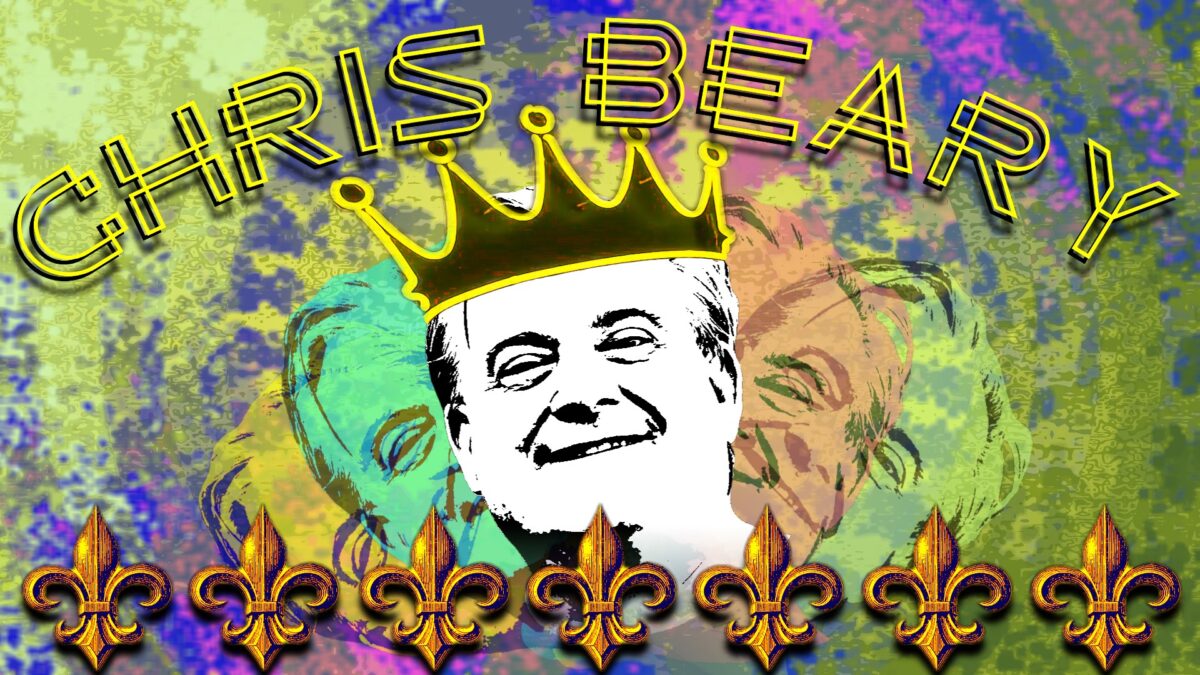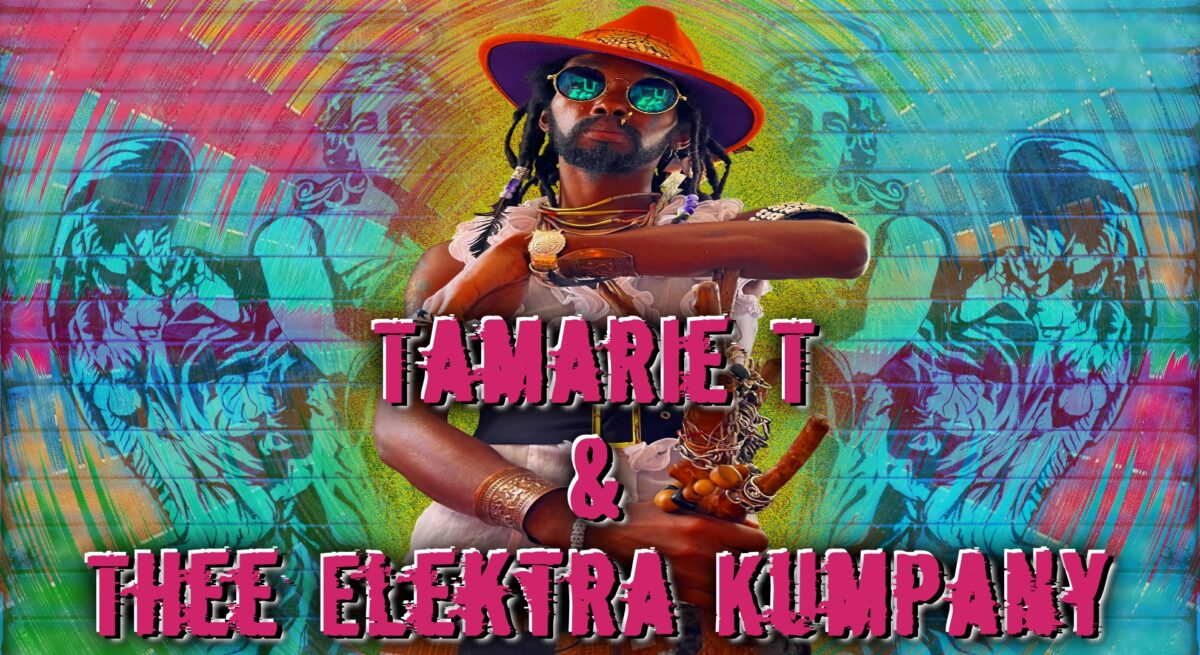Chris Beary is a social entrepreneur who has contributed consistently to the New Orleans community and the preservation of Louisiana music history over the last three decades. He is the founder of several non-profit organizations in the city, and serves in managerial or ownership capacities of many other businesses across a variety of sectors. After practicing law for 25 years, he shifted his focus to community building and social endeavors. I have been hearing about one project by the name of the Funky Uncle for quite some time now, and it was a pleasure to give a few listens to this interview.
An interesting topic mentioned early in the interview is the realization we all eventually have: all artists are not local to us. There is a difference between the music we hear in recordings and the music which is crafted by local and regional musicians. I can remember having a similar realization in my teens when it finally dawned on me that not all music I had just heard had been recently released. I recall boldly proclaiming to my parents that a friend had introduced me to the next great band of 2001: Guns N’ Roses!
Beary describes his realization as perhaps more gradual and smooth; exploring the city as a preteen on his bicycle, hearing local musicians and attending all-ages shows at Jimmy’s Music Club. The intersection of our memory lanes, however, lies in the eyes-wide-open thrill of discovering live music performances. The energy, improvisation and temporality of a great live performance can never truly be captured on a recording, and Beary has put his money where his mouth is to create opportunities for performers to captivate their audience and perform wholeheartedly. More on that later.
Coming from a family of music fans, Beary was encouraged in his growing interest in live music performances. He describes going out initially to see any show he could find, but refining his interest over time and following bands who he most preferred to hear. As he talks about “peeling back the onion” and understanding music on a deeper level, he says his interest in becoming a part of the machine began to develop along with a deep appreciation of funk music. Although self-described as a mediocre drummer, he talks about his natural inclination from a young age to want to be a part of the music scene.
A lifelong entrepreneur, Beary talks about his brief foray into music club ownership in the late 90’s, when he purchased Jimmy’s Music Club. He says the experience ultimately led him to consider all of his future ventures into the industry as social entrepreneurship. He then talks about the financial hardships faced by musicians in the gig economy, citing several reasons why these observations led him to become a social entrepreneur and champion of fair economic treatment of musicians. It is pretty common water cooler talk to hear folks on the scene express these sentiments, but it comes as a welcome relief to listen to this podcast and hear about an individual with this level of credential who has devoted a significant portion of their life to this worthy cause. It takes all kinds of people to make up a thriving community, and savvy businessmen are no exception.
Moving forward, he details the circumstances which led towards the eventual formation of The Funky Uncle Live including his introduction to guitarist/composer Cristian Duque. I have had the pleasure to work with Cristian many times in the past, and was thrilled to hear of the collaboration with the spirited entrepreneurial vision of Beary. One of the most notable things I have seen in Cristian’s group, Soul Project, is his commitment to performing original music with fleshed out arrangements. On the occasions I have heard them perform covers, they bring a distinct energy and earnestness to the performance which stands out wholesomely. To mention the firepower of the ensemble itself… go check them out!
The discussion between the two led to the creation of a beautiful thing; a mardi gras float equipped with a professional soundstage. Duque is quoted (paraphrased here) as pointing out the disparity between the typical quality of venue soundstages vs the immaculate planning that goes into studios for recorded music. Once the float had been designed and built, the debut performance was held at a “JazzFest for the homeless”, an event which became a staple for the roving venue until the 2020 pandemic. During this time, Beary and Duque began conversing about the possibility of using the float as the backdrop for socially-distanced, streamed performances. He describes the generosity of the local community, detailing several crucial production functions and equipment which were donated to the cause.
Through the course of the pandemic, the venue served as a functional and safe performance outlet for over 100 unique bands to broadcast shows as a means of income during the quarantine. At this point, he touches on another crucial element in this conversation: Beary was able to draw in a community of collaboration because he is not benefiting financially from the effort. As the interviewer points out, this is immediately disarming for potential collaborators for apparent and universal reasons. The network of support generated by the Funky Uncle Live during the COVID pandemic will certainly stand as a testament to the importance of community building and philanthropy. Not every music lover can be a gigging musician, and not every gigging musician has the economic ability to bring things into life. It is an observably symbiotic community which has sprung up through altruism, but more crucially backed by humility, expertise and good intention.
Beary’s interest in the arts is not limited to live musical performances: he goes into a great detail within the full interview about the series of paintings by local artist Frenchy which depict the COVID concerts at the Funky Uncle. These paintings were sold, with the overwhelming majority of the proceeds going toward supporting the musicians who performed at the venue. Beary marvels at the speed and frenzied dexterity of Frenchy, likening his focal intensity to operating as fast as four people at once. Displaying a consistently organizational mind, he describes the paintings as a body of work worthy of examination as a whole. He draws a simile between the progression of an artist’s career to the development of the perspective used to capture the energy of the live, audience-less, performances.
As the pandemic drew to a close, Beary decided to renew his commitment to community work and has allocated roughly 90% of his working hours to pursue social entrepreneurship. One of the first projects at this time was a compilation album to commemorate the spirit of the Funky Uncle community, which was completed in 2021. These albums were passed out during Mardi Gras 2022, and the physical copies are sure to become collector’s items. The album also included interview recordings interspersed with the musical tracks, serving as an homage to the performers who shared their stories with the broadcast audience. As the local venues began to reopen, the streaming shows have ceased, but the Funky Uncle still rolls on for community and private events as well as fundraisers.
Beary’s current community development project is the Louisiana Music and Heritage Experience, a massive music museum which is slated for construction across from the Convention Center. I recommend listening to the full podcast episode to hear the description of many of the exhibitions and performances to occur at the new museum. From the sound of it, this will be an employment opportunity for music lovers, historians, and performers alike. I will likely write a follow-up to this piece once there are continued developments to the museum.
This interview shed a lot of insight into the enthusiastic spirit of Chris Beary. I have not yet had a chance to meet him, but there is something decidedly disarming about the way he speaks about the collaborators who have helped him to create musical communities. You may not be a musician, Chris, but you’re a funky moth- I’ll shut my mouth.
-KB




















